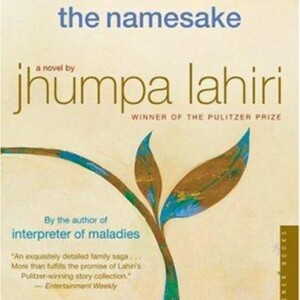

The Namesake: Audio Summary of Identity, Family, and Cultural Journey
"The Namesake" by Jhumpa Lahiri explores themes of identity, belonging, and cultural dislocation through the life of Gogol Ganguli, the son of Bengali immigrants in America. The novel delves into Gogol's struggle with his name, which symbolizes his conflicted heritage and the pressure of cultural expectations. As he navigates the challenges of growing up in a foreign environment, the narrative highlights the generational divide between him and his traditional parents, Ashoke and Ashima, as well as the broader immigrant experience. Ultimately, Gogol's journey reflects the complexities of identity formation and the search for self-acceptance amid cultural differences.
2 Key Concepts of The NamesakeIn Chapter 1 of "The Namesake," the theme of identity and cultural dislocation is introduced through Gogol Ganguli's parents, Ashoke and Ashima, as they navigate life in America while holding onto their Bengali roots. This theme recurs throughout the novel, particularly in Chapters 3, 5, and 7. In Chapter 3, Gogol’s struggles with his name and its significance reflect his internal conflict regarding his identity. In Chapter 5, his experiences at college further accentuate his sense of alienation and the complexities of cultural assimilation. By Chapter 7, Gogol’s relationship choices illustrate his ongoing challenges in reconciling his heritage with his personal desires, highlighting the theme's persistence throughout the narrative.
3 In-Depth Chapter Analysis of The Namesake by Jhumpa LahiriIn "The Namesake" by Jhumpa Lahiri, the narrative is structured around the distinct phases of Gogol Ganguli's life, each chapter revealing the complexities of identity and belonging. In the early chapters, such as Chapter 1 and Chapter 3, the theme of cultural dislocation is pronounced through Gogol's experiences as a first-generation American child grappling with his Bengali heritage. For instance, in Chapter 1, Gogol’s struggle with his unusual name, a source of embarrassment and confusion in school, highlights his alienation and desire to assimilate into American culture, contrasting sharply with his parents' adherence to their roots. This conflict is emblematic of the broader theme of identity, as he feels caught between two worlds.
As the story progresses into later chapters, particularly Chapter 5 and Chapter 8, the theme deepens, exploring the complexities of familial relationships and the impact of loss. In Chapter 5, Gogol’s experiences at college and his fleeting relationships underscore his ongoing quest for identity, increasingly distancing him from his family's traditions. The poignant moment of Ashoke's death in Chapter 8 serves as a pivotal point in Gogol's journey, compelling him to confront his heritage. This act of mourning brings a newfound appreciation for his father’s legacy, as Gogol begins to embrace his name and its significance, ultimately signifying a reconciliation with his identity. Through these chapters, Lahiri powerfully illustrates the interplay between cultural heritage and personal growth, revealing how the struggles within family and self can lead to a deeper understanding of one's place in the world.
Book Summary Audio Bookey https://www.bookey.app/audiobook/the-namesake
Quotes https://www.bookey.app/book/the-namesake/quote
Youtube https://www.youtube.com/watch?v=IFIgzYVRfKk
Amazon https://www.amazon.com/Namesake-Novel-Jhumpa-Lahiri/dp/0618485228
Goodreads https://www.goodreads.com/book/show/33917.The_Namesake
More Episodes
All Episodes>>Create Your Podcast In Minutes
- Full-featured podcast site
- Unlimited storage and bandwidth
- Comprehensive podcast stats
- Distribute to Apple Podcasts, Spotify, and more
- Make money with your podcast












